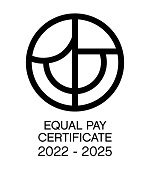No actions by Namibian police towards employees
The Namibian authorities have made no efforts to interfere with current or former employees of companies affiliated with Samherji. Neither by its own initiative nor through co-operation with other countries. News coverage that the Namibian authorities want to talk to some of Samherji's current and former employees is therefore very misleading.
The Icelandic National Broadcasting Service (RÚV) reported yesterday that Namibian law enforcement authorities had been trying for some time to gather information on the whereabouts of two named employees of companies affiliated with Samherji to get them extradited to Namibia. The story is based on an affidavit by a Namibian police officer before a local court. In addition, several current and former employees were named in the report.
The said affidavit refers to a letter sent to Interpol, but information about this letter has been known for more than six months. It is important to note that none of the current or former employees of Samherji and affiliated companies is wanted by Interpol or has fled from justice, on the contrary. Neither the Namibian government nor Interpol has asked to speak to the individuals in question. Therefore, Interpol does not appear to have responded in any way to the letter mentioned earlier.
The policeman's affidavit is also very at odds with information that companies affiliated with Samherji have received from the Namibian authorities in recent months. After all, the companies and their representatives have consulted closely with the Namibian authorities on the permanent closure of operations in the country. In this regard, just two days ago, the Prosecutor-General of Namibia lifted the seizure of the trawler Heinaste. The vessel has now been sold and delivered to its new owner who has renamed it Tutungeni. The ship has already headed out to sea with the same crew as before. The lifting of the seizure was the result of a tripartite agreement between the seller of the vessel, a company affiliated with Samherji, its buyer and the Namibian authorities.
The reflections of individual police officers in Namibia have no bearing on the powers that generally apply to extradition between states in connection with criminal proceedings. The Namibian authorities have no legal authority to demand the extradition of Icelandic citizens as there is no agreement between the states on the extradition. This was not mentioned in the story published by RÚV. It should be noted that none of the current or former employees of companies in the Samherji group has the legal status of a defendant in connection with an investigation in Namibia and none of them has engaged in conduct that could justify such status. The policeman's thoughts on this that were covered by the media are therefore baseless.
In fact, Namibian officials seem to be fully aware that they will not be able to interfere with Samherji's current or former employees, as the Namibian authorities, or any other authorities acting on their behalf, have made no attempt to contact any of these individuals or the company itself, in Iceland or in other countries, where the employees in question have been working.
For further information, contact:
Margrét Ólafsdóttir
margret@samherji.is


